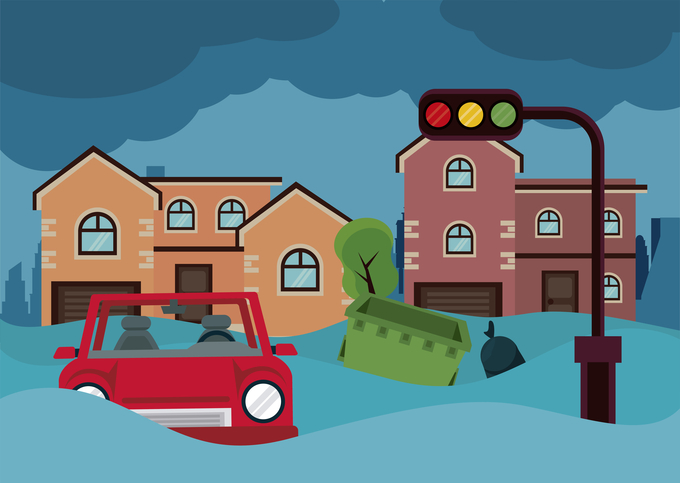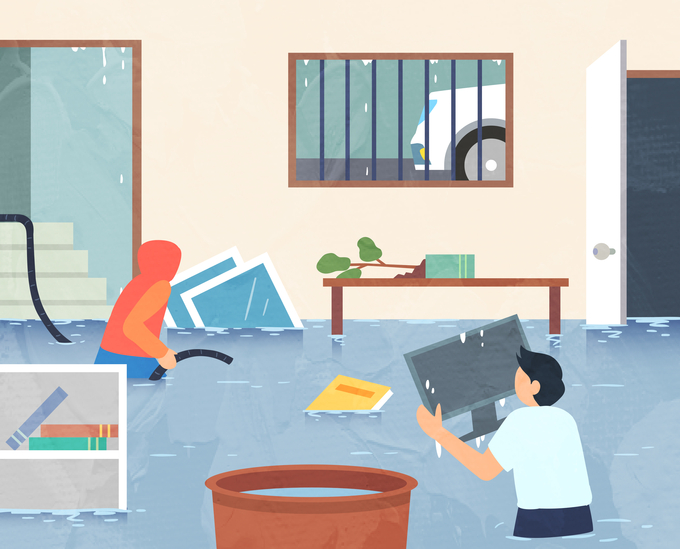 Heavy rain caused by the rainy season has caused casualties and property damage across the country. In particular, casualties were concentrated in Chungcheong-do Province and Gyeongsangbuk-do Province, and livestock damage was severe. On the Osong Underground Road in Cheongju, 15 city buses and vehicles were submerged due to a sudden flood of water. In Gyeongsangbuk-do Province, when a mudslide occurred, the ground was deeply gouged and muddy water flowed, and all crops were submerged, raising concerns among farmers ahead of harvest. Meanwhile, some KTX and general trains were suspended.
Heavy rain caused by the rainy season has caused casualties and property damage across the country. In particular, casualties were concentrated in Chungcheong-do Province and Gyeongsangbuk-do Province, and livestock damage was severe. On the Osong Underground Road in Cheongju, 15 city buses and vehicles were submerged due to a sudden flood of water. In Gyeongsangbuk-do Province, when a mudslide occurred, the ground was deeply gouged and muddy water flowed, and all crops were submerged, raising concerns among farmers ahead of harvest. Meanwhile, some KTX and general trains were suspended.
According to experts, there are various reasons for the heavy rain, but local heavy rain has continued as a result of rising temperatures caused by increased greenhouse gas. This means that as long as global warming continues, such heavy rain could fall more often in the future. Therefore, it is also prudent to reduce greenhouse gas emissions in order to decrease this damage even a little in the future. However, it is impossible to stop the rain from falling right away. For this reason, it is most important to be familiar with how to cope with heavy rain and how to act to minimize damage.
Heavy rain means a situation in which there is a lot of rain in a short time beyond the average rainfall. As much rain falls in a short period of time, it is most important to know how to cope with it at ordinary times as it can cause various natural disasters such as flooding, landslides, and river flooding if we do not prevent heavy rain in advance. Then, how should we prepare for heavy rain?
 First of all, the most dangerous and avoidable place when heavy rain falls is around a river. If an evacuation broadcast comes out during camping, we should evacuate quickly according to the guidance. If the river overflows and the velocity of flow is fast, and the water is up to the knees, it is important to stop moving and call 119 to ensure safety before moving.
First of all, the most dangerous and avoidable place when heavy rain falls is around a river. If an evacuation broadcast comes out during camping, we should evacuate quickly according to the guidance. If the river overflows and the velocity of flow is fast, and the water is up to the knees, it is important to stop moving and call 119 to ensure safety before moving.
However, it is not always safe when we are at home or in a building. Houses and buildings are also at risk of flooding in heavy rain. When a house starts to be filled with water due to heavy rain, we should first turn off the electricity at the main breaker in the house. At this time, it is dangerous to touch the breaker with wet hands, so rubber gloves or dry cloth must be used. In the event of an accident caused by an electric shock, the victim should be separated from the wires and electronic devices. Afterwards, if it is confirmed that no current is flowing, emergency treatment should be started before paramedics come. In addition, it is impossible to open the door alone when the outside water level is over the knee. Therefore, we need to evacuate quickly while the water level is low. If it is difficult to go outside because the water is already too high, call 119 immediately and wait for rescue.
In addition to the rainy season, heavy rain caused by typhoons is also formidable. In particular, Korea is heavily affected by strong typhoons in summer and autumn. As autumn comes with cool weather, typhoons develop, heavy rain causes inconvenience across the country every year. The most effective way to minimize the damage from heavy rain is to prepare in advance. To this end, we should take precautions such as checking weather information periodically in our daily lives.








